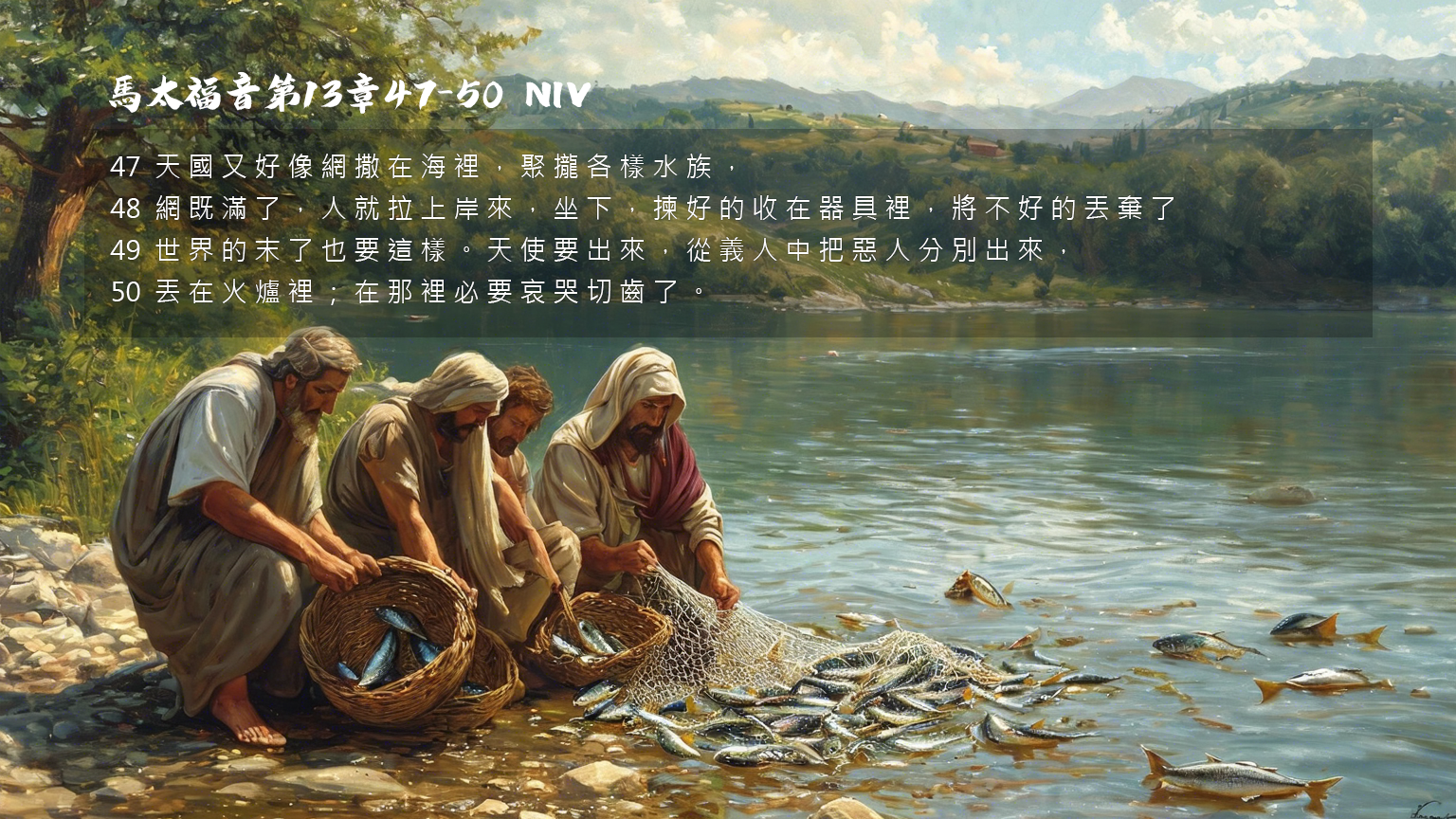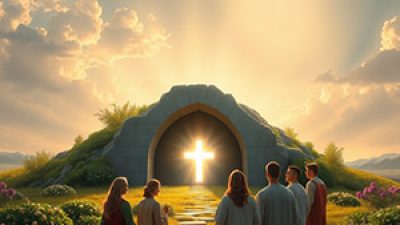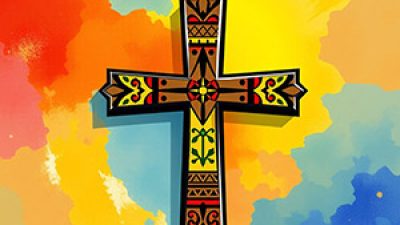太13:1
That same day Jesus went out of the house and sat by the lake.
當那一天,耶穌從房子裡出來,坐在海邊。
太13:2
Such large crowds gathered /ˈɡæð.ɚ/ around him that he got into a boat and sat in it, while all the people stood /stʊd/ on the shore /ʃɔːr/.
stood (stand的過去式)直立的, (使)直立, (使)站立…
gathered 收集, 收集,搜集, 聚集,集拢
有許多人到他那裡聚集,他只得上船坐下,眾人都站在岸上。
太13:3
Then he told them many things in parables (尤指道德或宗教)寓言故事, saying: “A farmer went out to sow /soʊ/ 種植, 播種 his seed /siːd/ 種子.
他用比喻對他們講許多道理,說:“有一個撒種的出去撒種。
太13:4
As he was scattering /ˈskæt̬.ɚ.ɪŋ/ 分散的少量东西 the seed, some fell 跌落 along the path /pæθ/, and the birds came /keɪm/ and ate /eɪt/ it up.
ate(eat的過去式)
fell 跌落, (fall 的过去式), 砍倒
path 小徑, 路,小道,小徑, 一系列行動
撒的時候,有落在路旁的,飛鳥來吃盡了;
太13:5
Some fell on rocky /ˈrɑː.ki/ 岩石 places, where it did not have much soil /sɔɪl/土壤. It sprang /spræŋ/ up quickly, because the soil was /wɑːz/ shallow /ˈʃæl.oʊ/ 浅的.
rocky 岩石, 岩石构成的,多岩石的, 崎岖难行的
soil 泥土,土壤, 國家, 國土
sprang (spring的過去式) 季节, 春天,春季, 弯曲的金属
shallow 不深的, 浅的,不深的, 不严肃的
有落在土淺石頭地上的,土既不深,發苗最快,
太13:6
But when the sun came up, the plants /plænts/ 植物 were scorched /skɔːrtʃt/ 燒焦的;燒毀的;燙壞的, and they withered /ˈwɪð.ɚd/ 枯萎的;乾枯的 because they had no root.
root 植物的一部分, 根,根莖,根塊, 原因/根源…
日頭出來一曬,因為沒有根,就枯乾了;
太13:7
Other seed fell among /əˈmʌŋ/ thorns /θɔːrn/ 刺,荊棘jīng jí, which grew up and choked /tʃoʊkt/ the plants.
among 在…中, 為…所環繞, 在…(群體)中
choked (因為難過而)哽咽的,說不出話的
有落在荊棘裡的,荊棘長起來,把它擠住了;
太13:8
Still other seed fell on good soil, where it produced /prəˈduːst/ a crop /krɑːp/ 莊稼,作物;收成,收穫量–a hundred, sixty or thirty times what was sown /soʊ/ 播種,種.
又有落在好土裡的,就結實,有一百倍的,有六十倍的,有三十倍的。
太13:9
Whoever has ears, let them hear.”
有耳可聽的,就應當聽!”
太13:10
The disciples came to him and asked, “Why do you speak to the people in parables?”
門徒進前來,問耶穌說:“對眾人講話為什麼用比喻呢?”
太13:11
He replied, “Because the knowledge /ˈnɑː.lɪdʒ/ of the secrets /ˈsiː.krət/秘密, 奧秘, 秘訣 of the kingdom of heaven has been given to you, but not to them.
耶穌回答說:“因為天國的奧秘,只叫你們知道,不叫他們知道。
太13:12
Whoever has will be given more, and they will have an abundance /əˈbʌn.dəns/大量, 充足, 豐富. Whoever does not have, even what they have will be taken from them.
凡有的,還要加給他,叫他有餘;凡沒有的,連他所有的也要奪去。
太13:13
This is why I speak to them in parables: “Though /ðoʊ/ 雖然,儘管 seeing, they do not see; though hearing, they do not hear or understand.
所以我用比喻對他們講,是因他們看也看不見,聽也聽不見,也不明白。
太13:14
In them is fulfilled the prophecy of Isaiah /aiˊzaiә/: “‘You will be ever hearing but never understanding; you will be ever seeing but never perceiving /pəˈsiːv/ 認為;看待;視為.
在他們身上,正應了以賽亞的預言,說:‘你們聽是要聽見,卻不明白;看是要看見,卻不曉得。
太13:15
For this people’s heart /hɑːrt/ has become calloused /ˈkæl.əst/ (手或脚)长着老茧的; they hardly /ˈhɑːrd.li/ 僅僅, 幾乎不, 絕不 hear with their ears, and they have closed their eyes. Otherwise they might see with their eyes, hear with their ears, understand with their hearts and turn, and I would heal them.’
因為這百姓油蒙了心,耳朵發沉,眼睛閉著;恐怕眼睛看見,耳朵聽見,心裡明白,回轉過來,我就醫治他們。’
太13:16
But blessed are your eyes because they see, and your ears because they hear.
但你們的眼睛是有福的,因為看見了;你們的耳朵也是有福的,因為聽見了。
太13:17
For truly I tell you, many prophets and righteous /ˈraɪ.tʃəs/ people longed to see what you see but did not see it, and to hear what you hear but did not hear it.
righteous 正義的, 公正的, 正當的
我實在告訴你們:從前有許多先知和義人要看你們所看的,卻沒有看見;要聽你們所聽的,卻沒有聽見。
太13:18
“Listen then to what the parable 寓言故事 of the sower 播種者 means:
所以,你們當聽這撒種的比喻:
太13:19
When anyone hears the message about the kingdom and does not understand it, the evil one comes and snatches /snætʃs/ 快速拿, 奪走,搶走, 綁架 away what was sown in their heart. This is the seed sown along /əˈlɑːŋ/ the path.
along 方向, 沿著,順著,循著, 與…相鄰
凡聽見天國道理不明白的,那惡者就來,把所撒在他心裡的奪了去,這就是撒在路旁的了;
太13:20
The seed falling on rocky 岩石 ground 陸地, 土, 土壤 refers /rɪˈfɝː/ to 指的是 someone who hears the word and at once receives it with joy.
撒在石頭地上的,就是人聽了道,當下歡喜領受,
太13:21
But since they have no root, they last only a short /ʃɔːrt/ time. When trouble or persecution /ˈpɝː.sɪ.kjuːt/ 迫害, 虐待, 煩擾,糾纏 comes because of the word, they quickly fall away.
只因心裡沒有根,不過是暫時的,及至為道遭了患難,或是受了逼迫,立刻就跌倒了;
太13:22
The seed falling among the thorns /θɔːrn/ 刺,荊棘 refers /rɪˈfɝː/ to 指的是 someone who hears the word, but the worries of this life and the deceitfulness /dɪˈsiːt.fəl.nəs/ 欺騙, 欺詐 of wealth 錢財, 財富 choke the word, making it unfruitful.
choke 停止呼吸, (使)窒息, (使)哽噎
unfruitful 無成就的,無成果的, 不結果實的, 不育的,不孕的
撒在荊棘裡的,就是人聽了道,後來有世上的思慮,錢財的迷惑,把道擠住了,不能結實;
太13:23
But the seed falling on good soil 土壤 refers /rɪˈfɝː/ to someone who hears the word and understands it. This is the one who produces a crop, yielding /ˈjiːl.dɪŋ/ 柔性的, 易彎曲的 a hundred, sixty or thirty times what was sown.”
撒在好地上的,就是人聽道明白了,後來結實,有一百倍的,有六十倍的,有三十倍的。”
太13:24
Jesus told them another parable: “The kingdom of heaven is like a man who sowed good seed in his field.
耶穌又設個比喻對他們說:“天國好像人撒好種在田裡,
太13:25
But while everyone was sleeping, his enemy came and sowed weeds 雜草, 野草 among the wheat /wiːt/ 小麥, and went away.
及至人睡覺的時候,有仇敵來,將稗bài子撒在麥子裡就走了。
太13:26
When the wheat sprouted and formed heads, then the weeds also appeared /əˈpɪr/ 在場, 出現, 呈現.
sprout 發(芽),抽(芽), 長出(毛髮等), (葉、毛髮等)生長
form (使)出現,(使)形成,(使)産生, 將…製成特定形狀, 製作
到長苗吐穗的時候,稗子也顯出來。
太13:27
“The owner’s servants came to him and said, ‘Sir, didn’t you sow good seed in your field? Where then did the weeds come from?’
田主的僕人來告訴他說:‘主啊,你不是撒好種在田裡嗎?從哪裡來的稗子呢?’
太13:28
“‘An enemy did this,’ he replied. “The servants asked him, ‘Do you want us to go and pull them up?’
主人說:‘這是仇敵做的。’僕人說:‘你要我們去薅hāo出來嗎?’
太13:29
“‘No,’ he answered, ‘because while you are pulling the weeds, you may 可能,也許 uproot /ʌpˈruːt/ 將…連根拔起 the wheat with them.
主人說:‘不必,恐怕薅稗子,連麥子也拔出來。
太13:30
Let both grow together until the harvest. At that time I will tell the harvesters: First collect the weeds and tie 繫, 打結, 縛,捆,紮 them in bundles 束, 捆, 推 to be burned; then gather 收集, 搜集, 聚集,集攏 the wheat and bring it into my barn /bɑːrn/ 穀倉,糧倉.’”
容這兩樣一齊長,等著收割。當收割的時候,我要對收割的人說:先將稗子薅出來,捆成捆,留著燒;惟有麥子要收在倉裡。’”
太13:31
He told them another parable: “The kingdom of heaven is like a mustard /ˈmʌs.tɚd/ 芥末 seed, which a man took and planted /plænt/ 生物體, 植物 in his field.
他又設個比喻對他們說:“天國好像一粒芥菜種,有人拿去種在田裡。
太13:32
Though it is the smallest of all your seeds, yet when it grows, it is the largest of garden plants and becomes a tree, so that the birds of the air come and perch /pɝːtʃ/ 棲qī息在高處 in its branches /ˈbræn.tʃɪz/神經枝.”
這原是百種裡最小的,等到長起來,卻比各樣的菜都大,且成了樹,天上的飛鳥來宿在它的枝上。”
太13:33
He told them still another parable: “The kingdom of heaven is like yeast /jiːst/ 酵母, 酵母菌 that a woman took and mixed /mɪkst/ 混雜的 into a large amount of flour until it worked all through the dough /doʊ/ 麵粉, 麵團,麵坯, 錢.”
mixed (感覺或觀點)不統一的,褒貶混雜的, (不同的人或物)混合的, 混雜的
他又對他們講個比喻說:“天國好像面酵,有婦人拿來,藏在三鬥面裡,直等全團都發起來。”
太13:34
Jesus spoke all these /ðiːz/ things to the crowd in parables; he did not say anything to them without using a parable.
use /juːz/ 目的, 用,使用, 利用
這都是耶穌用比喻對眾人說的話;若不用比喻,就不對他們說什麼。
太13:35
So was fulfilled what was spoken through the prophet: “I will open my mouth in parables 寓言yù yán故事, I will utter 說, 講, 出聲 things hidden since the creation of the world.”
這是要應驗先知的話,說:“我要開口用比喻,把創世以來所隱藏的事發明出來。”
太13:36
Then he left the crowd and went into the house. His disciples came to him and said, “Explain to us the parable of the weeds in the field.”
當下耶穌離開眾人,進了房子。他的門徒進前來,說:“請把田間稗子的比喻講給我們聽。”
太13:37
He answered, “The one who sowed the good seed is the Son of Man.
他回答說:“那撒好種的就是人子,
太13:38
The field is the world, and the good seed stands for the sons of the kingdom. The weeds are the sons of the evil one,
田地就是世界,好種就是天國之子;稗子就是那惡者之子,
太13:39
and the enemy who sows them is the devil /ˈdev.əl/. The harvest /ˈhɑːr.vəst/ 收穫時節, 收割,收穫, 收成 is the end of the age, and the harvesters are angels /ˈeɪn.dʒəlz/.
devil 魔鬼, 魔鬼,惡魔,妖魔, 人
age 活著的時間, 年齡,年紀, 存在時間
撒稗子的仇敵就是魔鬼;收割的時候就是世界的末了,收割的人就是天使。
太13:40
“As the weeds are pulled up and burned in the fire, so it will be at the end of the age.
將稗子薅出來用火焚燒,世界的末了也要如此。
太13:41
The Son of Man will send out his angels, and they will weed out 淘汰 of his kingdom everything that causes /kɑːzɪz/;/ˈkɔːzɪz/ sin and all who do evil.
weed out 清除, 剔除, 淘汰
人子要差遣使者,把一切叫人跌倒的和作惡的,從他國裡挑出來,
太13:42
They will throw them into the fiery /ˈfaɪə.ri/火紅的 furnace /ˈfɝː.nɪs/ 熔爐, 暖氣爐, where there will be weeping and gnashing /næʃ/ 咬牙切齒 of teeth.
weep哭泣,流淚, 哭泣的,流淚的, (受伤部位出现的清夜、血液或脓液)渗出的
丟在火爐裡,在那裡必要哀哭切齒了。
太13:43
Then the righteous will shine like the sun in the kingdom of their Father. He who has ears, let him hear.
那時,義人在他們父的國裡,要發出光來,像太陽一樣。有耳可聽的,就應當聽!
太13:44
“The kingdom of heaven is like treasure /ˈtreʒ.ɚ/ 珍品, 財寶, 珍寶 hidden in a field. When a man found it, he hid it again, and then in his joy went and sold all he had and bought that field.
天國好像寶貝藏在地裡。人遇見了,就把他藏起來。歡歡喜喜的去變賣一切所有的買這塊地。
太13:45
“Again, the kingdom of heaven is like a merchant /ˈmɝː.tʃənt/ 商人 looking for fine pearls /pɝːl/珍珠, 人造珍珠, 液態珠狀物.
merchant 商人, (尤指外貿)批發商, 對(令人討厭之事)入迷的人,好…的人
天國又好像買賣人尋找好珠子,
太13:46
When he found one of great 巨大的 value /ˈvæl.juː/錢, 價值, 價格, he went away and sold everything he had and bought it.
遇見一顆重價的珠子,就去變賣他一切所有的,買了這顆珠子。
太13:47
“Once again, the kingdom of heaven is like a net that was let down into the lake and caught all kinds of fish.
天國又好像網撒在海裡,聚攏各樣水族。
太13:48
When it was full, the fishermen pulled it up on the shore. Then they sat down and collected the good fish in baskets, but threw the bad away.
網既滿了,人就拉上岸來;坐下,揀好的收在器具裡,將不好的丟棄了。
太13:49
This is how it will be at the end of the age. The angels will come and separate /ˈsep.ər.ət/ /ˈsep.ɚ.ət/ 分離 the wicked /ˈwɪk.ɪd/ 壞的, 邪惡的, 缺德的 from the righteous
separate 各自的, 單獨的,不同的, (使)分離
世界的末了也要這樣。天使要出來,從義人中把惡人分別出來,
太13:50
and throw them into the fiery /ˈfaɪə.ri/ furnace /ˈfɝː.nɪs/, where there will be weeping and gnashing of teeth.
丟在火爐裡,在那裡必要哀哭切齒了。”
太13:51
“Have you understood all these things?” Jesus asked. “Yes,” they replied.
耶穌說:“這一切的話你們都明白了嗎?”他們說:“我們明白了。”
太13:52
He said to them, “Therefore 因此,因而,所以 every teacher of the law who has been instructed about the kingdom of heaven is like the owner of a house who brings out of his storeroom new treasures as well as old.”
他說:“凡文士受教作天國的門徒,就像一個家主,從他庫裡拿出新舊的東西來。”
太13:53
When Jesus had finished these parables, he moved on from there.
耶穌說完了這些比喻,就離開那裡,
太13:54
Coming to his hometown, he began teaching the people in their synagogue /ˈsɪn.ə.ɡɑːɡ/ 猶太教堂, and they were amazed 十分驚奇的. “Where did this man get this wisdom and these miraculous /məˈræk.jə.ləs/ 奇跡般的 powers?” they asked.
來到自己的家鄉,在會堂裡教訓人,甚至他們都希奇,說:“這人從哪裡有這等智慧和異能呢?
太13:55
“Isn’t this the carpenter’s /ˈkɑːr.pɪn.t̬ɚ/ 木匠, 木工 son? Isn’t his mother’s name Mary, and aren’t his brothers James, Joseph /’dʒəuzif/, Simon and Judas?
這不是木匠的兒子嗎?他母親不是叫馬利亞嗎?他弟兄們不是叫雅各、約西(有古卷作“約瑟”)、西門、猶大嗎?
太13:56
Aren’t /ɑːrnt/ all his sisters with us? Where then did this man get all these things?”
他妹妹們不是都在我們這裡嗎?這人從哪裡有這一切的事呢?”
太13:57
And they took offense /əˈfens/ 罪行, 犯罪行為, 生氣 at him. But Jesus said to them, “Only in his hometown and in his own house is a prophet without honor /ˈɑː.nɚ/ 尊敬, 名譽,榮譽, 高尚品德.”
他們就厭棄他(“厭棄他”原文作“因他跌倒”)。耶穌對他們說:“大凡先知,除了本地本家之外,沒有不被人尊敬的。”
太13:58
And he did not do many miracles /ˈmɪr.ə.kəl/ there because of their lack 缺少 of faith 信任, 信心, 宗教.
耶穌因為他們不信,就在那裡不多行異能了。






